Rising fuel costs put car-reliant businesses under pressure
- Published
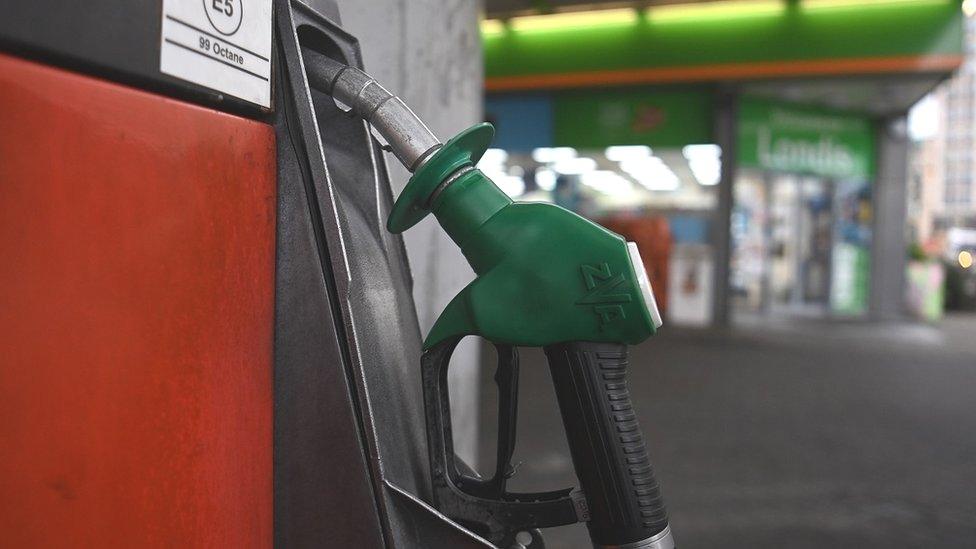
With fuel prices in Northern Ireland hitting record-breaking levels, car-reliant businesses and their employees are feeling the pressures.
Prices have soared since the Russian invasion of Ukraine.
On Thursday diesel was most expensive in Craigavon where it has hit 186.9p per litre, according to data collected the Consumer Council.
Some filling stations in Belfast and Carrickfergus have reportedly run out of diesel.
Meanwhile, the highest petrol price was found in Londonderry at 170.9p per litre.
In parts of Northern Ireland there is evidence some petrol stations offering the lowest prices have also struggled to meet demand.
It is believed customers are filling their tanks with cheaper fuel in anticipation of further rises.
Motorists in the Republic of Ireland have been queuing at some petrol stations as a cut in excise duty on petrol and diesel came into effect.
One fuel retailer said motorists from Northern Ireland were crossing the border to take advantage of the cuts, which has seen his prices fall by nearly 15 cents.
But in Omeath, County Louth, another town near the border, it has remained quiet despite a similar fall in fuel prices.
Fuel prices in other places near the border have remained mixed with stations offering higher and lower prices.
"We have to wait until Saturday before we can buy a load at the lower price," fuel retailer Terry Hughes said.
"It's going to take until then before we see the price reductions appear because everybody has a certain amount of stock in their tanks at the higher duty price."
In Northern Ireland, business owners have been speaking to BBC News NI about their concerns around fuel prices.

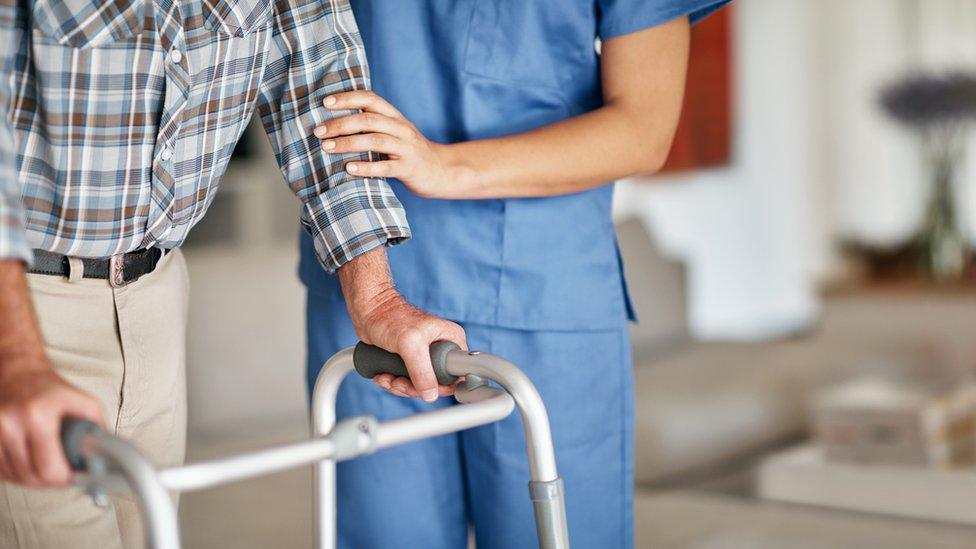
Emily Magrath runs Caremark Belfast and North Down, which has 400 staff caring for about 700 vulnerable people.
Her staff rely on being able to drive between patients' homes to provide that care.
Mrs Magrath said: "(A typical client like) Mrs Jones could need four calls a day, seven days a week, so if a care worker is doing morning, lunch and tea, they could be going to nine or 10 houses, three times a day.
"We're all making decisions at the minute not to turn our heating on or to use public transport but care workers can't do that, because Mrs Jones has been contracted four calls a day, seven days a week, so a care worker can't just decide they won't call with her."
For care workers, higher outgoings means less change in their pockets.
Walking rounds?
Mrs Magrath explained: "Our staff are paid a higher rate of pay, their mileage is included in their pay, but with higher fuel costs, there'll be less take home pay.
"One of our staff has recommended an app which tells the lowest petrol price in the area that they're working in."
Mrs Magrath says many have left the sector altogether.
"A rise in petrol prices is on top of the challenges that we're facing in terms of Covid - staff recruitment, getting staff into the sector, and in terms of staff retention, unfortunately staff have left this sector, and really good staff, because they've been so burnt out by what Covid has brought."
In a bid to retain staff, Caremark has made some changes to how staff operate.
"We're looking at all our runs and making sure they're really geographically close together so we wouldn't have care workers travelling from Bangor to Newtownards, we'd keep everyone in the same town," Mrs Magrath said.
"We've also started walking runs, so we've looked at runs that can be walked around, we're encouraging staff not to take their cars and to walk, and we're doing more of that in the coming weeks."


Christine Chambers runs a mobile nail and beauty business in Greater Belfast.
She told BBC News NI that due to the increase in fuel prices, she is paying almost double for diesel than she normally would have, to travel to all of her clients.
"I've noticed a massive difference in diesel prices," Ms Chambers said.
"Some days I could be going from Crumlin Road to Lisburn and then to Rathcoole, and I do try to fix the appointments to one particular area but sometimes I can't.
"From the increase, now I'm thinking 'is it worth my while going that far? Am I going to have to refuse some clients and keep it more local?'
"Because I'll end up working for pennies or turning clients away."
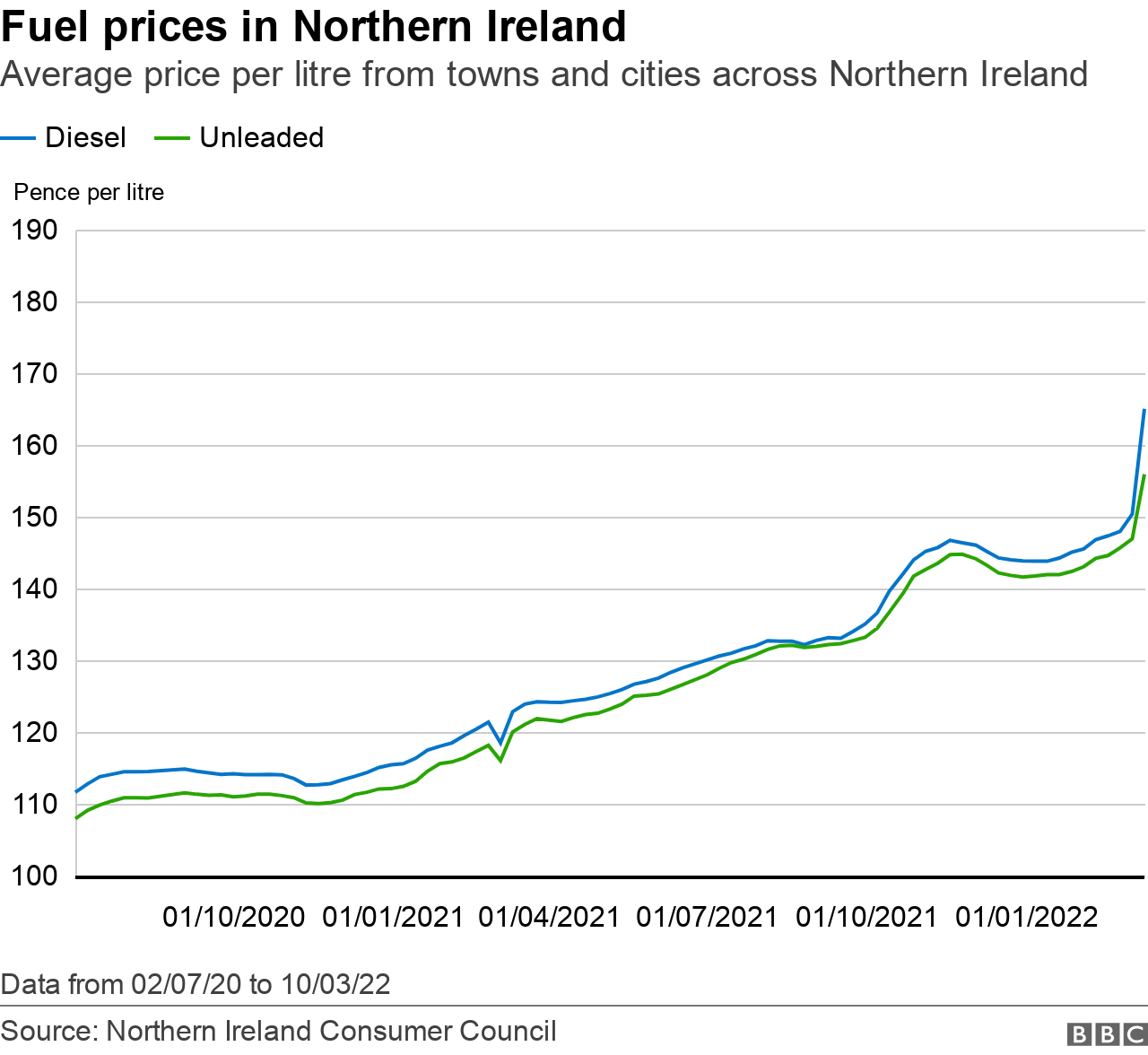

Ms Chambers said she had considered putting her prices up but feels people are already struggling financially since the pandemic and due to the soaring cost of living.
"Before the pandemic I had regular customers who visited me every two weeks but now it's every four, because it's not want any more, it's a luxury," she said.
"If things keep going this way I'm going to have to start asking people to travel to me and I know I'd lose customers.
"A lot of my clients are elderly, don't drive, or they're single mums trying to manage.
"So I would lose 80% of my income and I could end up having to close my doors, which I don't want to happen."

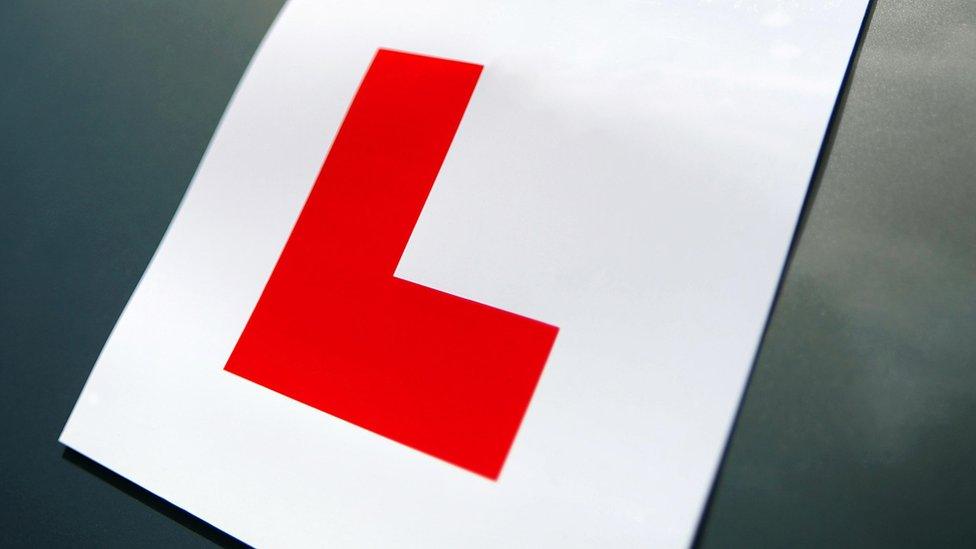
Driving instructors who use their vehicles almost daily are having to fill their cars with fuel more often
Oliver Quinn, a driving instructor from County Tyrone, says like many others, it is costing a lot more to fill the tank in his car.
"Here in Omagh, lessons are usually about £25 but I've noticed people putting them up to £30 recently," he said.
"I haven't put mine up yet but I might have no other choice at the end of the month.
"I'm using diesel and it's not taking us far at all any more."
Mr Quinn says he is worried the situation is only going to get worse.
"I've noticed some people are going for tests without any lessons or enough lessons and they're not ready, but people can't afford them.
"People's wages aren't going up and people are already spending more money on the likes of heating oil, so other things will have to fall by the wayside and lessons might not be a priority in that case."


Adam McRobb runs a mobile dog grooming business in Belfast.
He says while he has not noticed much of an impact yet, he believes the increase in petrol prices is going to affect his business "quite badly, soon".
"It's going to start cutting into profits," he told BBC News NI.
"Then you have the issue of groomers who are maybe already doing it from home and don't have the overhead costs that we do.
"Customers might end up going there instead."
When asked whether he considered increasing prices, Mr McRobb said he is going to "hold off as long as possible".
"When you add it all up - clipper blades, everyday maintenance, petrol, everything is already going up," he said.
"It'll make people not want to get their dogs groomed as often, they'll want to hold off.
"But coming into the summer they need cut and the dogs welfare will end up suffering."
Related topics
- Published7 March 2022
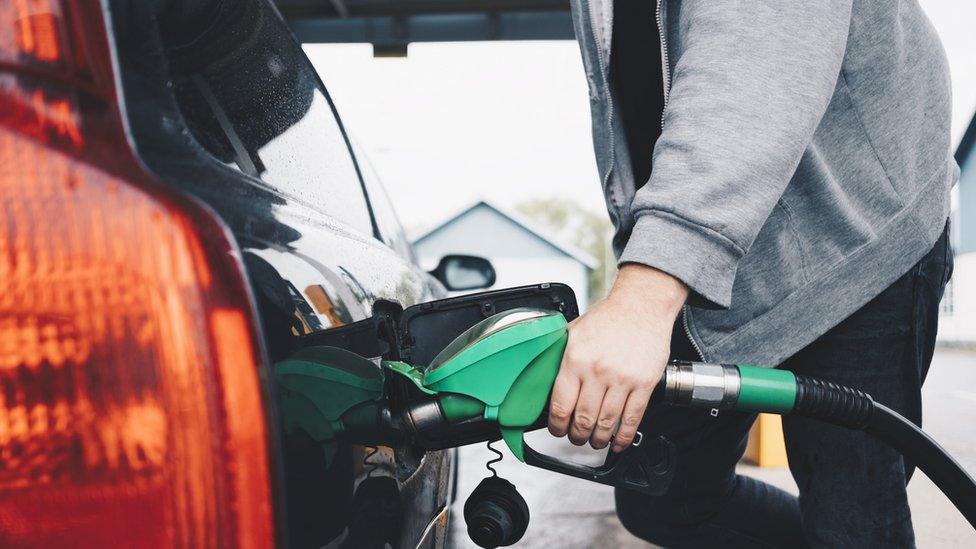
- Published7 March 2022
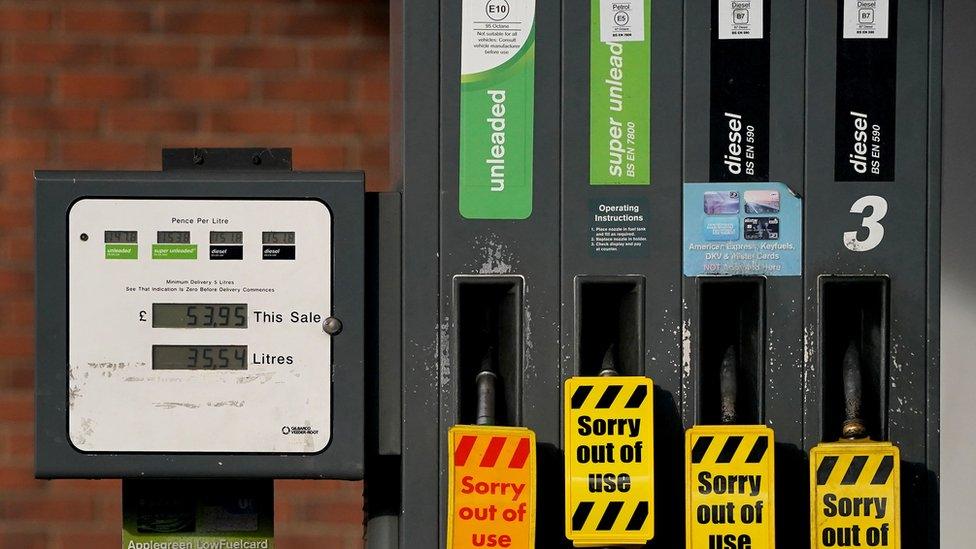
- Published6 March 2022
